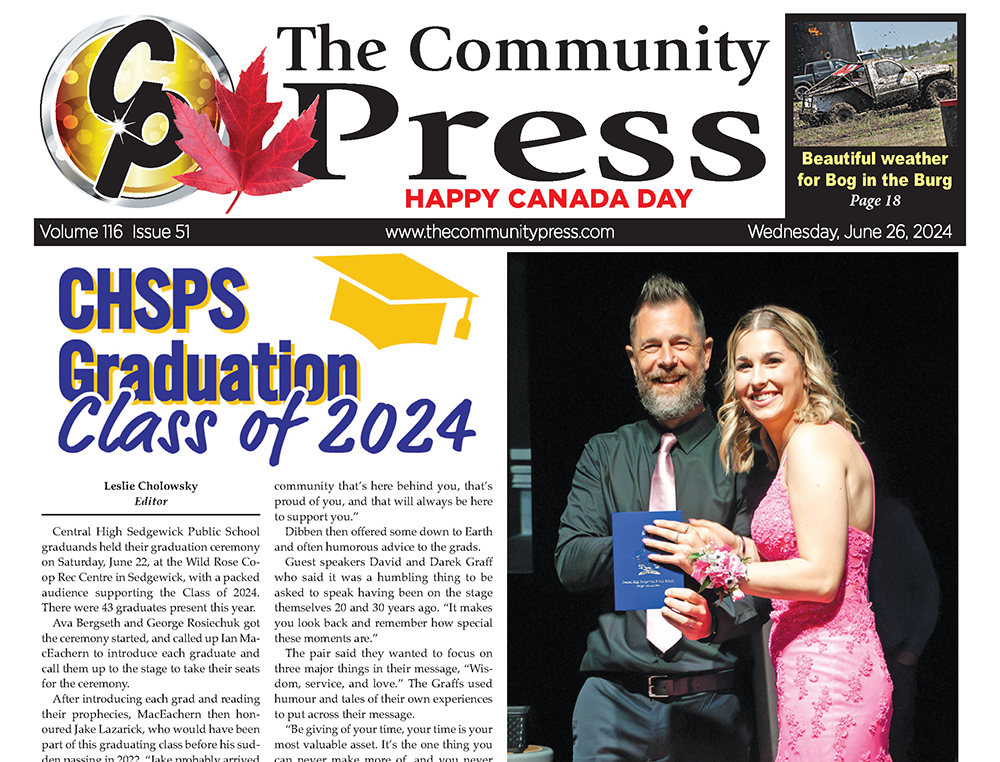Harassment of elected municipal officials worsening; contributing to resignations, wasted costs
Brett McKay,
Local Journalism Initiative Reporter
Worsening harassment of municipal officials is contributing to councillor resignations and pushing good candidates away from local politics, municipal leaders say.
“There’s been a definite increase in the amount of harassment that elected officials are taking,” said Tyler Gandam, Mayor of Wetaskiwin and president of Alberta Municipalities (ABmunis), an association representing more than 260 municipalities.
Gandam said he has witnessed the rise in harassment firsthand and has heard from other councillors about their experiences. The bulk of this behaviour occurs online, where people can anonymously “post misinformation or take shots at members of council” without consequence.
“You’re constantly playing defence, trying to squash any of the rumours and misinformation. It’s an ongoing battle that I don’t know how we’re going to fix or how we’re going to keep members of councils from resigning or making sure that good people either run or run again next election.”
Data on byelections from the government of Alberta shows about 30 per cent more councillors have resigned during the 2021 term compared to the 2017 term. Heather Jenkins, press secretary to Alberta’s Municipal Affairs minister, said in an e-mail that the ministry does not track the reason for an elected official’s resignation, and could not comment on how harassment is impacting councillor turnover.
“Harassment of any kind against elected officials is unacceptable. The Alberta government expects candidates and elected officials at all levels to be treated with respect at all times. Municipal Affairs provides support to local governments including advisory services for municipalities and information about roles and responsibilities for elected officials,” Jenkins said.
Cochrane Mayor Jeff Genung was first elected in 2017 and said in his experience living through two terms in office, a major shift in the political environment followed the COVID pandemic, when elected officials had to make heavy decisions on issues outside of their control or jurisdiction.
“Society looked to decision makers for help, and then also as a place of blame,” Genung said.
“My guess would be the people that are resigning are probably ones that carried that burden and then ran again, and then it continued to get worse.
“Because of the kind of the dynamic in the communities now, fuses are shorter. Social media has changed how you get feedback from people. It’s unchecked. It’s sometimes not even factual. And the burden on that coupled with the ‘hangover’ from COVID has likely too much for many (elected officials).”
At the 2023 State of Cochrane Address, held at the Cochrane RancheHouse, protesters organized around the 15-minute city conspiracy theory gathered and became aggressive, grabbing and berating officials and even spitting on Genung’s wife as she tried to enter the building.
Genung said the incident has shifted how he feels in his community. Though he has tried to move past the episode, the cycle of online misinformation snowballing and generating anger among residents has become a recurring element connected to council decisions.
As opposition to a recently proposed concrete batch plant in Cochrane gained steam, the 40 x 60 shop used to fill cement trucks morphed in online narratives into an industrial mining operation with disruptive smokestacks and excavators, and outrage over the development scaled up alongside these stories.
Throughout the approval process for a contentious permanent emergency homeless shelter in Wetaskiwin, Mayor Gandam said he too, has had to contend with a rash of false accusations and deliberate misrepresentations of information on social media, including years-old video clips of him speaking being repackaged to make it look like he was telling residents who opposed the new shelter to leave town.
People have used “the ability to take little clips from media or a video and take it out of context and use that as a platform to share misinformation,” Gandam said.
With municipal elections slated for 2025, Gandam said the conjoined issues of misleading information and rising harassment are problems with no obvious solution.
“I don’t know how to combat it or what we can do to mitigate some of these issues, but it’s going to make it really difficult to attract other people to run for council in 2025.”
The increase in harassment of elected officials hasn’t been limited to any community or level of government and is being felt across Canada.
Incidence of harassment experienced by members of parliament has increased almost 800 per cent in the last five years, the House of Commons sergeant-at-arms and corporate security officer Patrick McDonell told a committee studying the House harassment policy in May.
Most of the harassment recorded was online, but the number of threats against MPs has also climbed dramatically. In 2019, eight files were opened because of threats, and in 2023 there were 530 files opened, McDonnel reported.
Earlier this year, Quebec launched a helpline for politicians following a wave of resignations. Quebec’s Municipal Affairs Minister Andrée Laforest said a growing number of officials were quitting because of intimidation and harassment.
While the pandemic experience has fostered an environment where hostility toward elected officials is more common, Genung said there has also been a noticeable change “in the dynamic between elected officials themselves on a particular council.”
“We’re carrying a lot of the same baggage and grief (from COVID). We’re still experiencing that as individuals. And so how we’re interacting with one another has become increasingly strained in some cases. That also contributes to the stress, the anxiety and the energy drag.”
Genung said he expects this strained dynamic within some councils is making it harder for officials to do their job and contributing to turnover.
The government of Alberta plans to introduce required basic governance and roles and responsibilities training for municipally elected councillors “which will help to get them prepared for the role,” Jenkins said.





